|
Looking back on 2020, from the midst of it. Recently I found this reflection that I had written five months into the pandemic and never published. Prescient for me now. 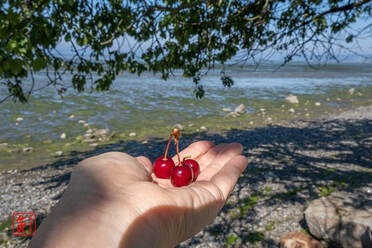 If you want to get to know a place, you might as well go there in a time of global pandemic. And if you have one, take your camera as a companion as you walk the neighbourhood for exercise. Much like a dog draws you into conversation with dog owners, the camera encourages you into dialogue with the empty lot, with the Beach and particularly the fence that spans the length between the freeway and the golf course where you walk when they cut off access to the Beach. If you're typically an urbanite like I am, your camera will help you see that the notion of four seasons is simplification. We think of the movement of the year as Spring, Summer, Autumn, Winter. Yet this Spring I became aware of the micro-seasons in that rhythm. Ornamental Cherry blossoms in March and April make way for Azalea and Rhododendron in May which wither as the Wild Roses bloom in June. Blueberries, Blackberries, and the one random Cherry Tree that inexplicably grows on the Beach begin to drop their Spring blossoms in favour of fruit as we move toward the time called Summer. 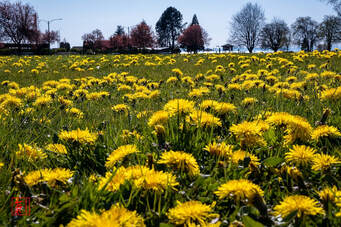 I suspect that looking back on this time of pandemic will be the same. It will become known as the 2020 Pandemic and remembered in a singular way, but in fact we live it in micro moments of blessings and witherings. Much like with flora, what grows depends on where you are located and the soil you're rooted in. Unlike with flowers, the things that burst forth and the things that wither may not be as directly connected as blossoms and fruit. As one recent meme noted, our social feeds first bloomed with sour dough tips and successes and shifted to highlighting the need to dismantle white supremacy. Growing a new sense of sufficiency evolved to disintegrating those things in myself that have kept unjust structures in place. Throughout this, seasons can also be marked by the colour of the lawn in the park across the street changing along with our level of fatigue and determination to use this time wisely. Simple green grass turns yellow with dandelions then fluffy white within weeks, only to become a different shade of yellow as buttercups take their turn. Small purple clover ornament the grass after that while larger varieties turn the empty lot into a wildflower garden along with thistles, tall grasses and seeding kale which you harvested before it seeded. 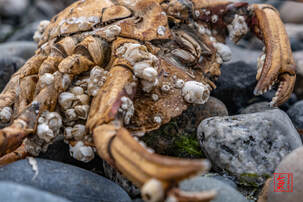 The Beach brings its own rolling seasons, each moment new. Changing tides, weather, and wildlife add layers to seasonal shift tracked through things that grow above the tide line. Horsetails alone mark microseasons with its evolving look. One evening the Beach is a wide expanse of pebbles. The next time a layer of drying seaweed covers the breadth. Yet another time dead crab carcasses scatter across the shore. Tide in, tide out. And then the geese come to mark the summer. In the past five months my camera and I have walked this neighbourhood a myriad of times capturing glimpses. I feel like we’re getting to know it in a more intimate way because we stop and listen. We hear perseverance here which we could retell as hope or understand as persistence. Humans may have felt stopped by the pandemic, but the seasons, the land, carry on. If I were paying attention, I'd have noticed sooner the commonality of books that have reached out to me in my exile — Desert Solitaire by Edward Abbey, Robin Wall Kimmerer’s Braiding Sweetgrass, Martin Shaw with Scatterlings. Each of these laid a finger on my wrist and whispered "here." This was a poetic here: Here, read me; Here, this place; Here, this moment. It was as if something had conspired to draw me toward the stories I had forgotten to attend to, the living ones that carried on despite the constraints of human attempts to subdue. These reflections all centre on being gently shaken awake by the land outside your door. 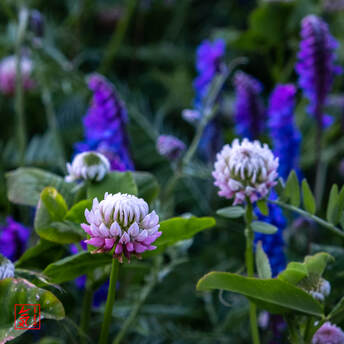 Story, myth, even parable live here. The principle moral, if you want to call it that, is that humans are not the centre, not even kinda. And we catch this by witnessing ourselves on the landscape. We are the barbed wire fence, the garbage on the Beach, the freeway and boarded houses. Not hero, not protagonist. Nature neither adores us nor abhors us. She will cover our barbed wire with petals, fill in our lots, and keep rising, setting, tide in, tide out, blooming and seeding. She will model what it means to admire the Sun setting on the Beach, without leaving beer cans. Come if you like. Or don’t. Now while walking the neighbourhood I feel a shift. The Wild Land on the corner (notice not empty lot) no longer tracks me with suspicion but beckons me over to hear what's going on. Even after someone has clearly mowed down its peak summer glory the stories are here if I care to listen. And if not, they’re here anyway. It transforms my understanding of God. While I continue to understand that Divine Love is unconditional I realize it’s also not personal. The Sun does not shine for my sake and yet my entire life is contingent on it. And my gratitude is even greater. I pick apples and bags of garbage off the Beach. Then I sit in comfortable silence watching geese land for the night as the Sun moves over the horizon.
1 Comment
Sandra Davies
7/2/2023 08:24:49 am
Thank you sharing your thoughts and pictures. You have a beautiful soul , way with words, and an eye that sees beautiful things in nature. The rhythm of life goes on, the colours of the different seasons. It feels so restful, hopeful and calm to see your pictures and read your words of wisdom. I do feel like we need to be better stewards of our land and seas. Sandra
Reply
Leave a Reply. |
Kimiko KarpoffScattered moments 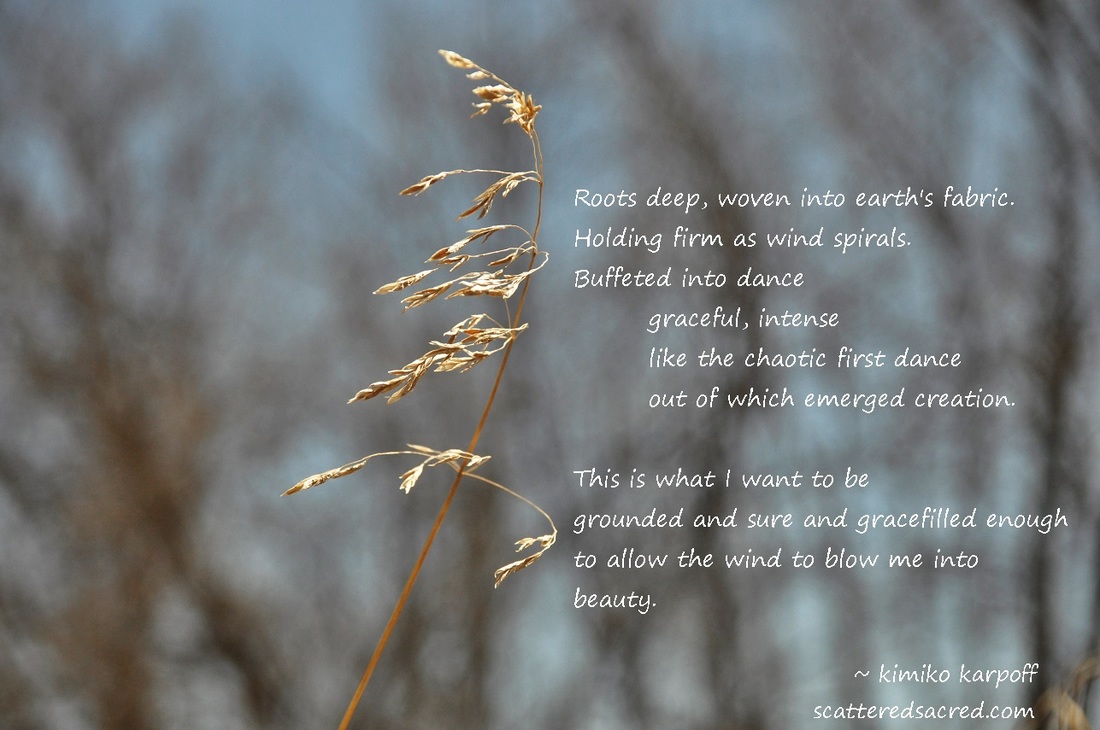
Click here to check out Kimiko's Postables
Paul's page includes photographs, stories from friends and fans, kimiko's blog posts and more.Categories
All
|
Proudly powered by Weebly

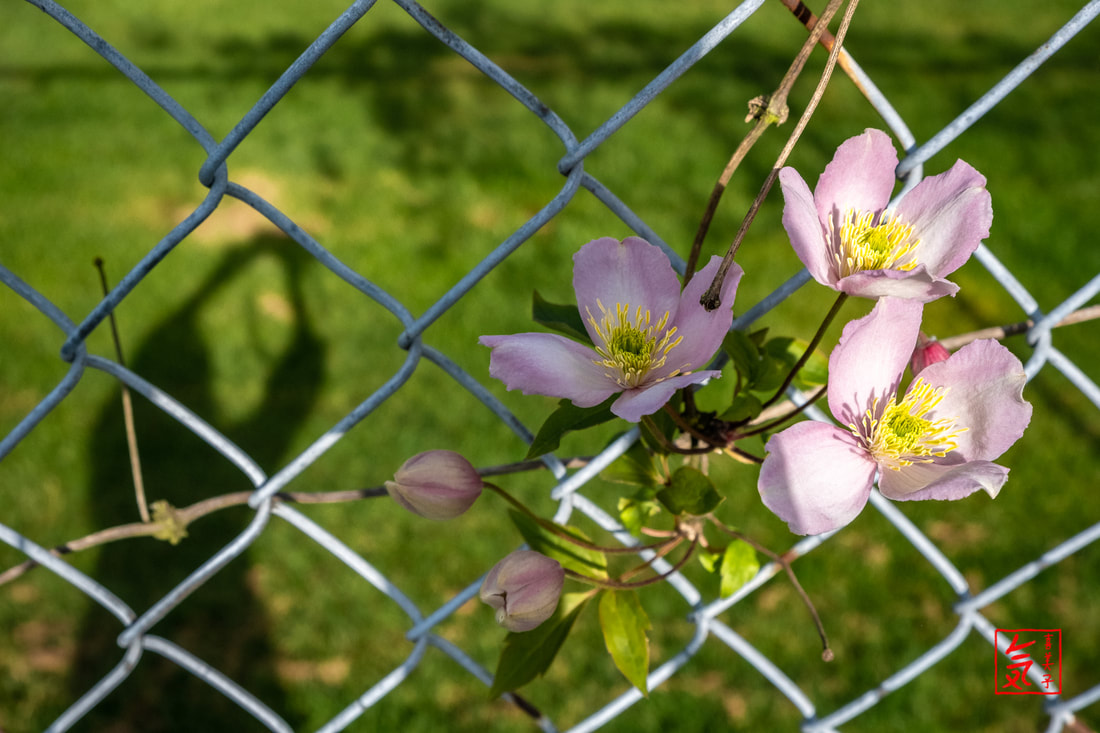
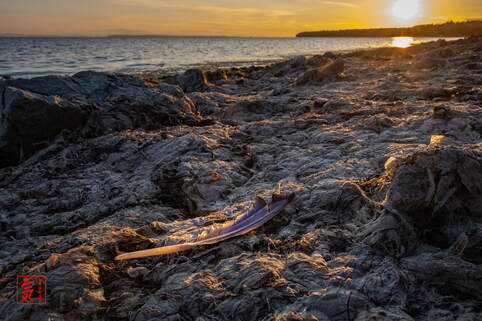
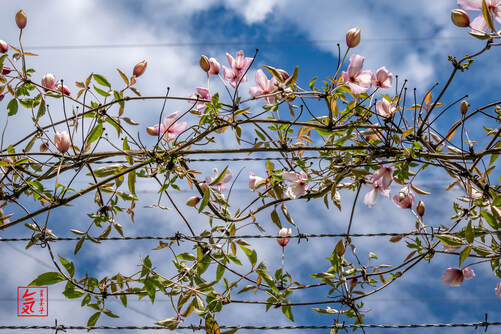
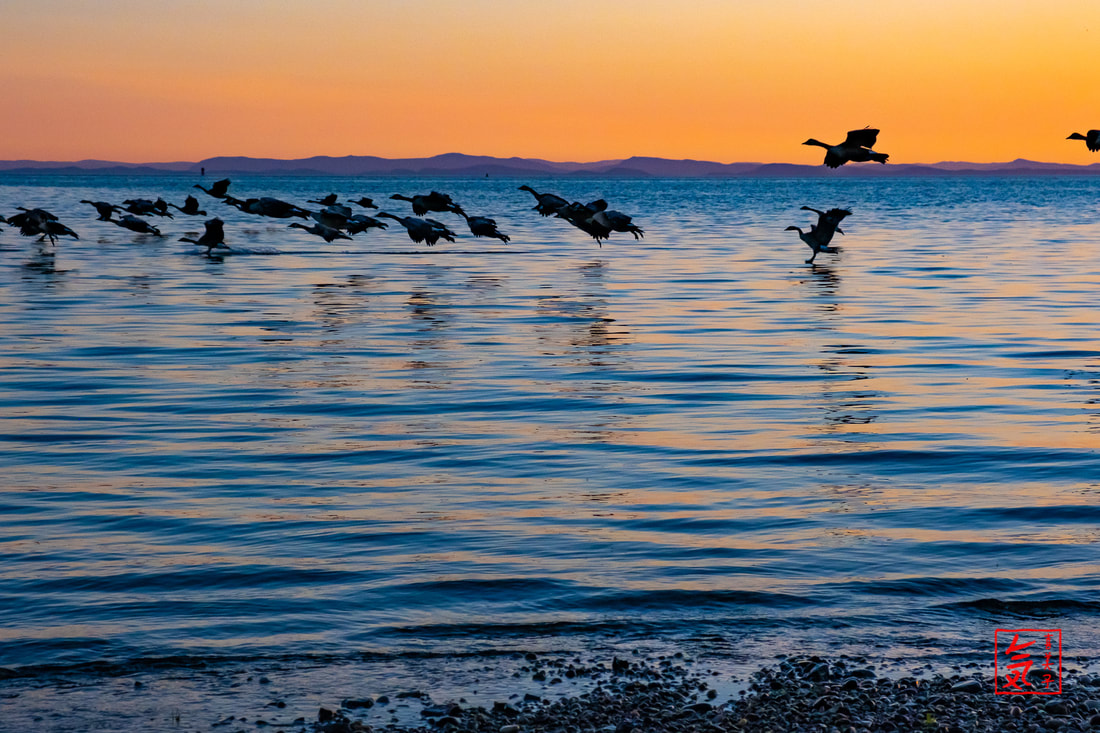
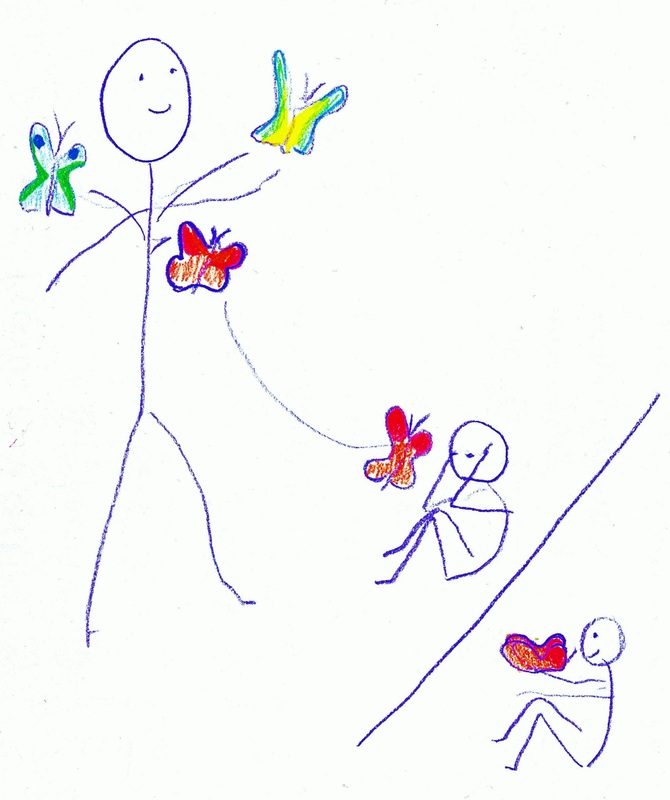
 RSS Feed
RSS Feed
